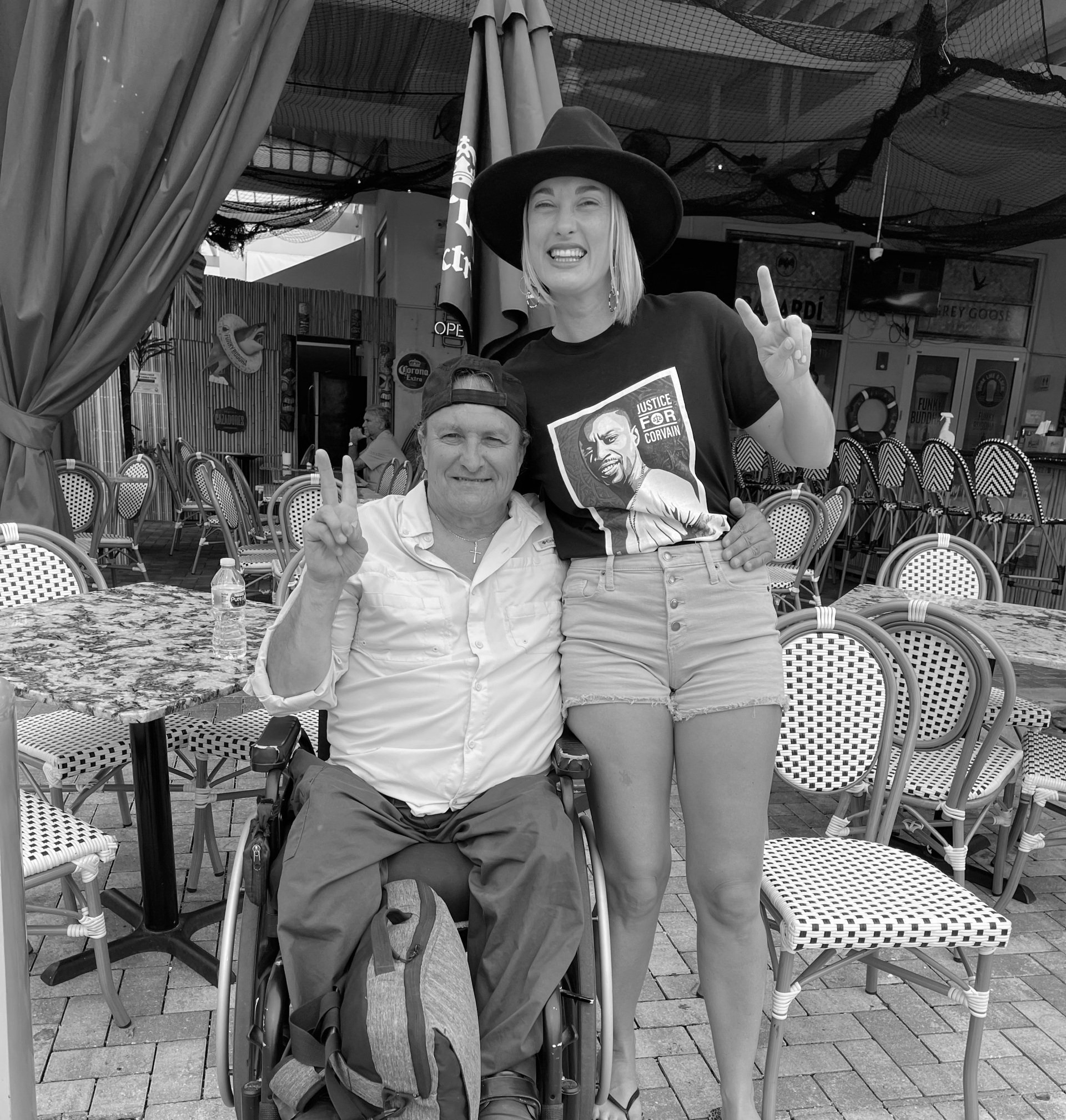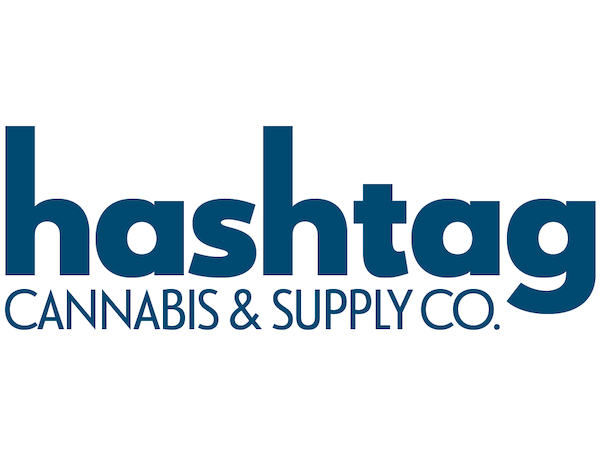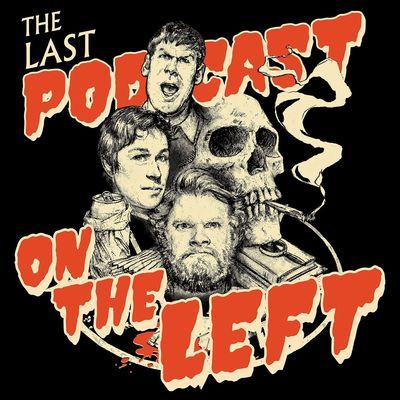By Stephen Post
•
24 Jul, 2024
Read our full comment with citations here. United States Sentencing Commission One Columbus Circle, N.E., Suite 2-500 Washington, D.C. 20002 Attn: Public Affairs – Priorities Comment Dear United States Sentencing Commissioners, The Last Prisoner Project (“LPP”) submits the following comments to the United States Sentencing Commission (“the Commission” or “USSC) in response to the Commission’s request for comment on possible policy priorities for the 2024-2025 amendment cycle. LPP commends the Commission for taking steps to better reflect the current legal and policy landscape surrounding cannabis activity in the United States, and specifically the recent amendment #821 C, which allows for a downward departure to a criminal history score for a prior cannabis possession conviction. We would like to take this opportunity to urge the Commission to further amend the sentencing guidelines to exclude prior cannabis possession offenses from criminal history scores entirely, so that they are not used to increase criminal sentences for subsequent offenses. We also want to thank the Commission for clarifying via Amendment #814 that retroactive changes to law can be considered as extraordinary and compelling factors for a sentence reduction motion under section 3582(c)(1)(A) in the case of an “unusually long sentence”. Given the widespread and significant changes to the legality and public perception of cannabis, we would, however, ask that the Commission not limit the use of a retroactive change in law to individuals serving at least ten years of imprisonment. We also would like to address the Commission’s oversight of drug sentencing and the Drug Quantity and Drug Conversion Tables (hereinafter, the Tables). Specifically, we urge the Commission to conduct a complete review and revision of the Tables. Sentencing Guidelines Should Reflect Current Notions of Criminality In your 2023 publication “Weighing the Impact of Simple Possession of Marijuana” the Commission noted the shifting sentiment towards cannabis at both the state and federal level and the Commission again noted these changes in law when promulgating amendment #821 Part C. Today, 24 states and the District of Columbia have fully legalized cannabis for adult-use while only three states have no public cannabis access program.1 These state-legal marketplaces generate billions of dollars not just in sales, but also in tax revenue for these jurisdictions, all while cannabis remains federally illegal and the criminal status of cannabis continues to lead to hundreds of thousands of arrests each year. Now, the federal government is poised to reclassify cannabis–following the Health and HumanServices Department’s recommendation in late 2023, the Drug Enforcement Administration (DEA) recently announced its decision to reschedule cannabis to Schedule III. This move demonstrates the federal government’s shifting policy approach to cannabis as a less harmful substance with medicinal benefits. In conjunction with prospective changes to cannabis laws, local, state and federal political leaders are increasingly taking concrete action to mitigate the past harms caused by decades of cannabis prohibition. In October of 2022, President Biden pardoned all federal simple marijuana possession offenses and formally encouraged state governors to do the same, an action he expanded upon in late 2023.5 Officials have followed suit, as evidenced by former Oregon Governor Kate Brown pardoning over 45,000 individuals with marijuana convictions and Connecticut Governor Ned Lamont announcing the automatic clearing of over 44,000 cannabis records. City officials in places like New Orleans and Birmingham have also taken steps to pardon municipal marijuana possession offenses.8 These actions signify that, beyond the shifting legal landscape for cannabis use, public perception of cannabis has also changed. The vast majority of Americans, including the sitting President, no longer feel that cannabis use is something that should be criminalized. We have changed our approach to criminalizing cannabis, and thus, the US Sentencing Guidelines must be adjusted to reflect this current climate. Continuing to punish individuals for an activity that is legal for a majority of Americans does not comport with our country’s shared values of justice and fairness. It is only fitting that any marijuana offense, including but not limited to simple possession, should be eliminated from consideration as a factor in calculating an individual’s criminal history score for sentencing purposes. Removing Marijuana Offenses from Criminal History Scores will Result in More Equitable Sentencing When one considers the well-documented racial disparities found in the enforcement of cannabis laws, it is clear that excluding marijuana offenses from criminal history scores will also result in a more equitable approach to sentencing. In 2013, a report from the American Civil Liberties Union found that, despite virtually indistinguishable rates of cannabis consumption amongst racial groups, Black residents of the United States were 3.73 times as likely to be arrested for marijuana possession than their white counterparts. A 2020 follow-up to the ACLU report found that, despite several states legalizing or decriminalizing cannabis, these racial disparities remained essentially unchanged. Data indicates that these racial disparities appear to persist in conviction rates and sentencing. As sentencing guidelines are meant to be considered objectively and reflect an accurate prediction of an individual's criminality, removing marijuana convictions from individuals’ criminal history scores would be a step toward creating a more equitable sentencing process. In addition, excluding marijuana convictions from consideration altogether is also in line with the current administration’s position on the criminality of cannabis use. As President Biden stated, “sending people to prison for possessing marijuana has upended too many lives and incarcerated people for conduct that many states no longer prohibit.”13 If permanently enacted, this proposed amendment would help alleviate, or at the very least not further exacerbate, the racial disparities in our criminal legal system. It’s also worth noting that the availability of avenues through which individuals can clear marijuana possession offenses from their records is highly dependent on the jurisdiction in which the offense took place. As noted above, many executive offices (whether it be the president, state governors, or mayors) have pardoned all simple marijuana possession offenses. In some jurisdictions, like Oregon, that pardon results in automatic record clearance. However, in most jurisdictions, pardoned offenses still appear on an individual’s criminal record, perpetuating barriers to employment, housing, and educational opportunities (to name just a few of the collateral consequences accompanying even a low-level marijuana conviction). Although several states have established methods for individuals to expunge or remove previous marijuana-related convictions, disparities still exist among those who can access this relief successfully. Clearing one's record can be overwhelming, especially for individuals lacking a legal background, technical knowledge, or easy access to criminal records and court filings. Eligible individuals with language barriers or illiteracy also struggle to clear their records. Consequently, race and socioeconomic status often determine who can overcome these difficulties and access record clearing and expungement. Unfortunately, most eligible individuals do not complete these record-clearing processes. This disparity in accessing record-clearing mechanisms for marijuana offenses is yet another inequality present in the Commission’s current guidelines, which include marijuana possession offenses in criminal history scores. It’s unfair that those who, for the reasons named above, could not clear their records successfully are subject to harsher sentencing ranges. A Marijuana Conviction is Not a Valid Predictor of Future Criminality The US Sentencing Guidelines Manual states that a “defendant with a record of prior criminal behavior is more culpable than a first offender and thus deserving of greater punishment.” The manual goes on to note that because “[r]epeated criminal behavior is an indicator of a limited likelihood of successful rehabilitation,” an individual’s criminal history must be considered during the sentencing phase “[t]o protect the public from further crimes of the…defendant.” In the case of a simple marijuana possession offense, however, there is little correlation between cannabis use and criminality. According to a national study of recidivism, individuals convicted of drug offenses have significantly lower recidivism rates than those convicted of violent or property-related crimes. Additionally, a 2020 report authored by the Commission found that individuals convicted of marijuana-related offenses have one of the lowest rates of recidivism when compared to other drug offenses. In one of the few available studies on recidivism rates for individuals where drug possession (as opposed to trafficking) was their primary offense, the rate of recidivism was incredibly low as compared to national averages. In short, as there is no evidence that marijuana possession convictions are valid predictors of future criminal behavior (and thus do not endanger public safety), they should be excluded from individuals’ criminal history score calculations. Changes to Laws and Attitudes Surrounding Cannabis Also Warrant an Amendment to the Commission’s Compassionate Release Policy Statement In promulgating Amendment #814 the Commission described the circumstances in which an intervening change in the law can qualify as an extraordinary and compelling factor warranting compassionate release. The Commission clarified that such changes to the law may be considered if an applicant otherwise meets the factors warranting a sentence reduction or that such a change on its own could constitute an extraordinary and compelling factor if the case involves an “unusually long sentence” and the applicant has served at least ten years of a term of imprisonment. As the Commission noted in its Amendment: “One of the expressed purposes of section 3582(c)(1)(A) when it was enacted in 1984 was to provide a narrow avenue for judicial relief from unusually long sentences. Having abolished parole in the interest of certainty in sentencing, Congress recognized the need for such judicial authority.” Thus, compassionate release serves a critical function in providing relief where it is clear that the length of a term of imprisonment does not comport with modern laws and attitudes surrounding the criminal activity at hand. As described above, we now face a situation where thousands of federal prisoners remainincarcerated for activity that has been broadly legalized at the state level and that many are now profiting from. Our federal government has now also changed its stance on the dangerousness of cannabis and has acknowledged that cannabis has medicinal benefits. Given these circumstances, an individual serving a nine-year sentence for a controlling cannabis offense can credibly argue that their sentence is “unusually long” for the offense they are sentenced under. While cannabis may represent the offense that has seen the most pronounced change to its legal status in recent history, it is an all too common occurrence in American history that our beliefs, sentiments, and even scientific consensus evolve faster than our laws and their associated criminal penalties. As the remaining mechanism for relief for federal prisoners incarcerated under unjust laws, the compassionate release factors should be applied broadly enough not to exclude individuals whose sentences are unjust and excessive, but may not meet the ten year requirement, even if no other compassionate release factors apply. Changes to Drug Laws More Broadly Warrant a Reevaluation of the Drug Quantity and Drug Conversion Tables While over fifty years of ongoing political and educational messaging demonizing drug use and stigmatizing drug users has failed to realize a drug-free world, the underlying racial and social motivations have succeeded. Since its inception, the drug war has been overwhelmingly enforced in BIPOC communities, especially low-income ones, causing the country’s inflated prison population to be disproportionately comprised of Black, Latino, and Indigenous people. It has led to lengthy terms of imprisonment for relatively low-level offenses and for those with little to no criminal history, which perpetuates cycles of trauma and violence. The same conditions have fueled and perpetuated violence internationally and in inner-city neighborhoods nationwide, and have led to increases in concentration, adulteration, and toxicity of the substances themselves. An increasingly multi-partisan coalition is calling for change. In 2017, the USSC published a report describing, in part, how drug-related mandatory minimum penalties have been "applied more broadly than Congress may have anticipated.” Such non-discretionary sentencing fails to promote public health. Instead, it has the effect of incarcerating people for longer amounts of time than the evidence shows deters further criminal activity. While reversing and mending the harms of the war on drugs will take effort from people across the government and political spectrum, one way to shift policy in a more humane direction–and in alignment with contemporary evidence–is to go to one of the current roots of the problem: drug sentencing. The Drug Quantity and Drug Conversion Tables, set by the USSC, are used as a benchmark for federal drug sentencing and are often referenced or relied on in state sentencing decisions. Bringing these Tables into alignment with modern research about drug risks and harms would lead to more accuracy in sentencing decisions, which would both alleviate some of the socioeconomic harms of the drug war and save public funds, without risking public safety. Given that the Tables presently translate quantities of various illegal drugs into their marijuana-equivalent quantities for the purpose of determining relative harm, it would be appropriate to utilize the multi-agency review already happening with cannabis to review and update the tables. Additional research about other historically stigmatized substances should also inform this review. The Food and Drug Administration (FDA) granted a breakthrough therapy designation to MDMA-assisted therapy in 2017, and again granted two breakthrough therapy designations for psilocybin in treatment-resistant depression in 2018 and major depressive disorder in 2019. In 2024, the FDA extended the same status to an LSD formula for the treatment of generalized anxiety disorder. The FDA is also reviewing a new drug application for MDMA-assisted therapy, for which they will likely have a decision by August 2024. Meanwhile, there has been growing bipartisan support to fund clinical trials exploring the use of psychedelics to treat traumatic brain injuries, depression, military sexual trauma, and post-traumatic stress disorder in veterans. For instance, in the 2024 National Defense Authorization Act, the Department of Defense authorized funding a study on psychedelics for the treatment of PTSD in military members. In March 2024, the Department of Veterans Affairs passed a budget allocating $20 million for clinical trials for MDMA and psilocybin. The National Institutes of Health has also opened funding opportunities for studying psychedelic-assisted therapy for chronic pain in older adults. This shift in the evidence base, and concurrent changes in federal policy, reflects an increasing willingness and mandate to reevaluate long-held assumptions about controlled substances, paving the way for more drug policies driven by data rather than dogma. Alongside the evidence and government agencies, recent polls have found an overwhelming majority of American voters are also eager for a new approach to drug laws and responses to drug-related offenses. Over 60% support ending the War on Drugs; “eliminating criminal penalties for drug possession and reinvesting drug enforcement resources into treatment and addiction services”; repealing mandatory minimum sentences for drug crimes; and commuting, or reducing, the sentences of people incarcerated for drugs. Representing one of “the few truly bipartisan issues in American politics,” the “breadth and depth of support for change suggests that there are few issues for which the nation’s laws so misrepresent the preferences of the American people as for drugs.” Despite these widespread calls for evidence-based policies and new approaches for regulating controlled substances, the Tables remain based on outdated medical, scientific, and sociological information. Not only do they recommend disproportionately severe penalties, they have no basis in the actual risks posed by each substance, the realities of the illicit drug market, criminal culpability, or other public safety factors. Congress and this Commission have already acknowledged that the Tables have resulted in outrageous sentencing disparities for otherwise similar behaviors, at least in the context of crack versus powder cocaine. For the Tables to be more in line with the Controlled Substances Act’s stated process for regulation, there is a serious need for the USSC to re-evaluate sentences based on “current scientific knowledge regarding the drug or other substance,” potentially positive “pharmacological effect[s],”42 and likelihood of misuse and dependence. Any inquiry should take into account ways harm reduction approaches, public education, and proven methods of avoiding harm and use among minors can reduce the likelihood of misuses and dependence. Revising the Tables would likely lead to a reduction in resources spent on enforcement, prosecution, and punishment. Those resources could then be reinvested to bolster effective harm reduction and public education efforts. Last Prisoner Project and countless other organizations across the political spectrum and around the country are coming together to organize and inform the USSC and the general public about the importance of this issue. The United States is long overdue for sentencing reform, and the urgency lies especially with drug-related offenses. As a complete review and revision of the Tables will likely require the USSC to conduct a multi-year study, the Commission must take an important first step to initiate such an inquiry now. Conclusion Like all components of criminal sentencing, criminal history score calculations should be proportionate to the offense and no greater than necessary to further the goal of public safety. Additionally, sentencing guidelines should be equitable and structured in a way that works to reduce racial disparities. By removing prior cannabis offenses from criminal history scores and allowing for changes to cannabis laws to be used as the sole basis for an extraordinary and compelling justification for release under 3582(c)(1)(A) the Commission can better achieve its goals of sentencing policies that align with fairness and justice. In addition, we encourage the Commission to commit to conducting a reevaluation of the drug quantity and drug conversion tables more broadly given the available scientific and medical data. We appreciate the opportunity to comment on this request and thank the Commission for its time and consideration.


















































